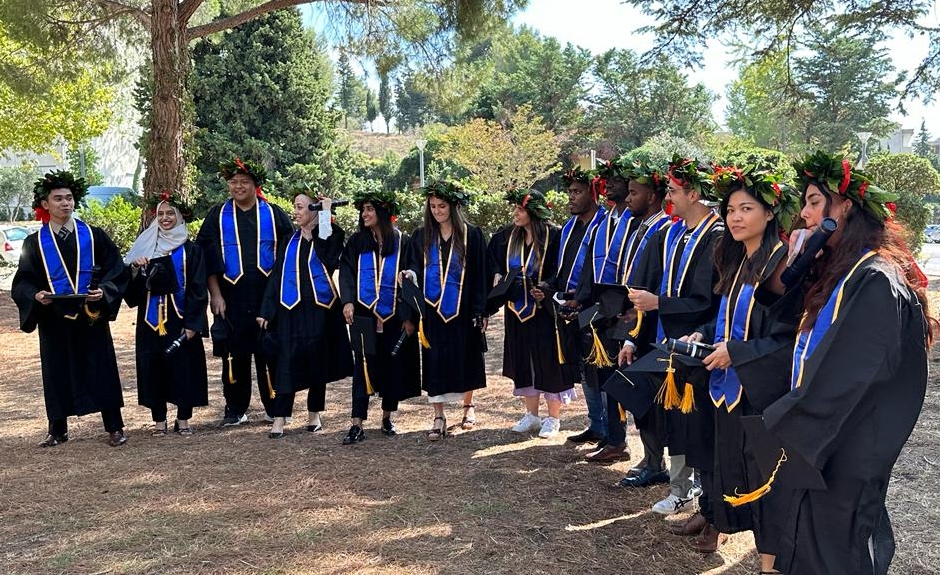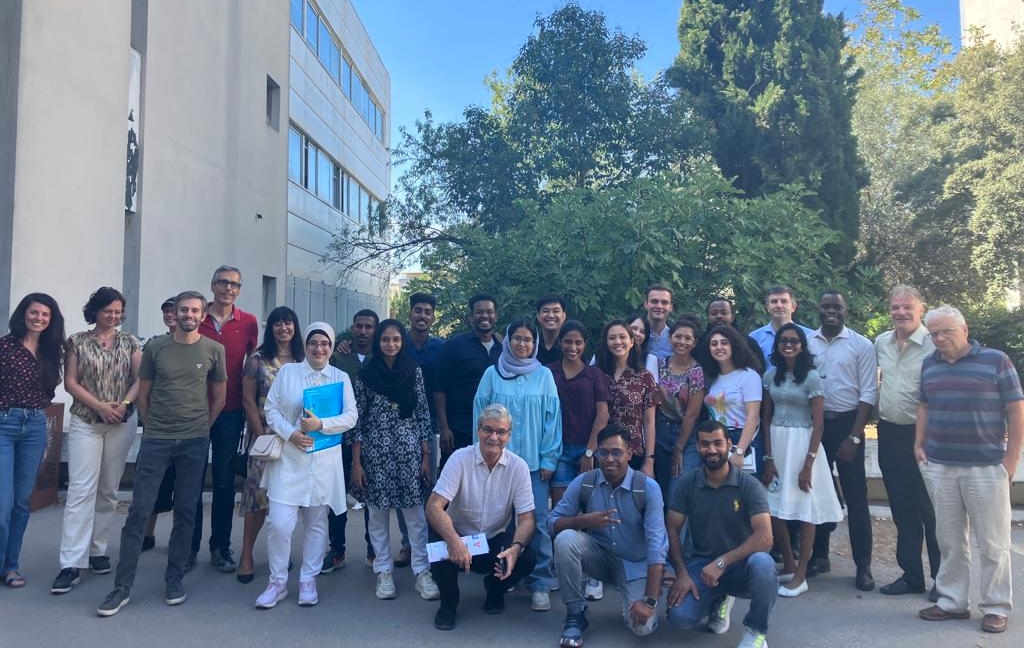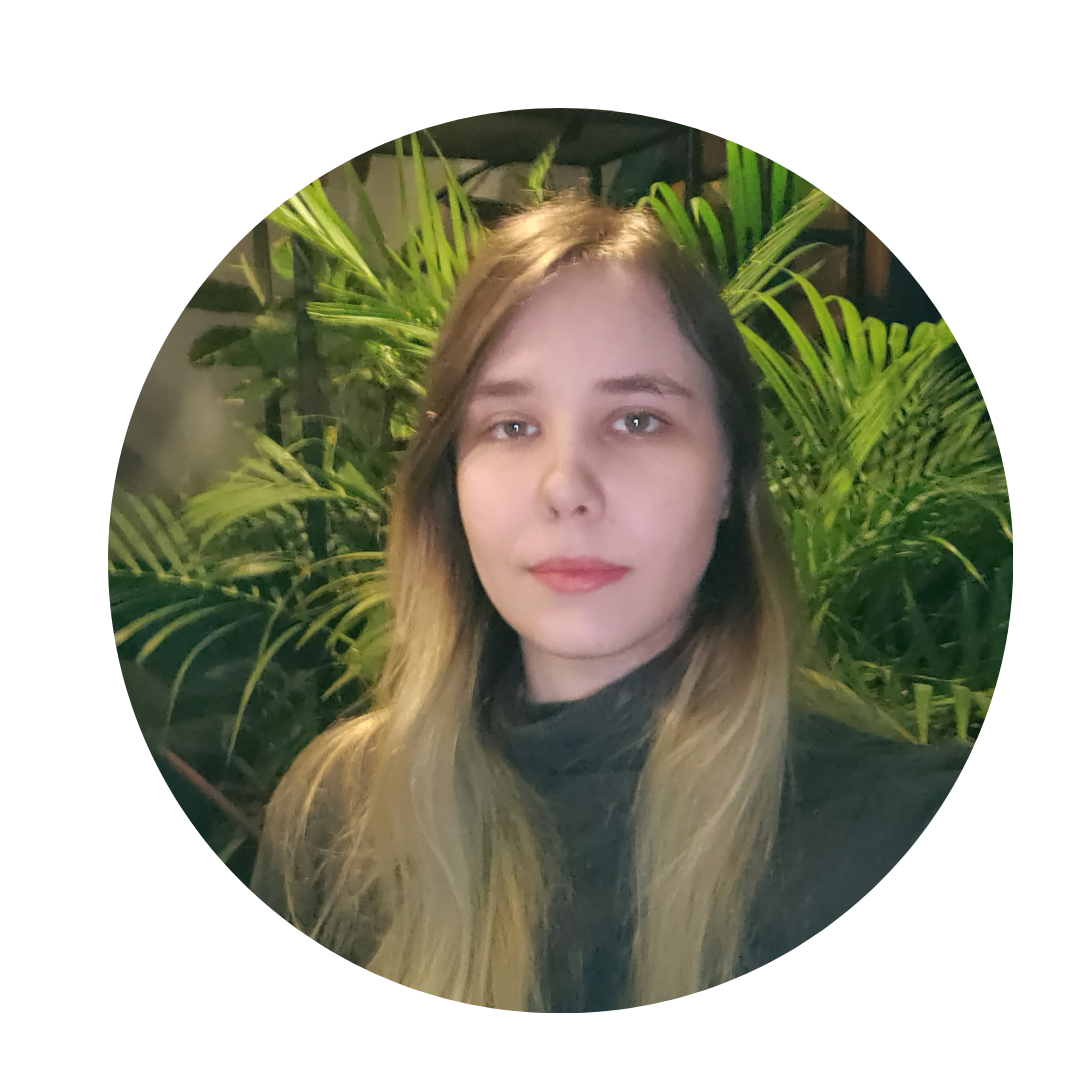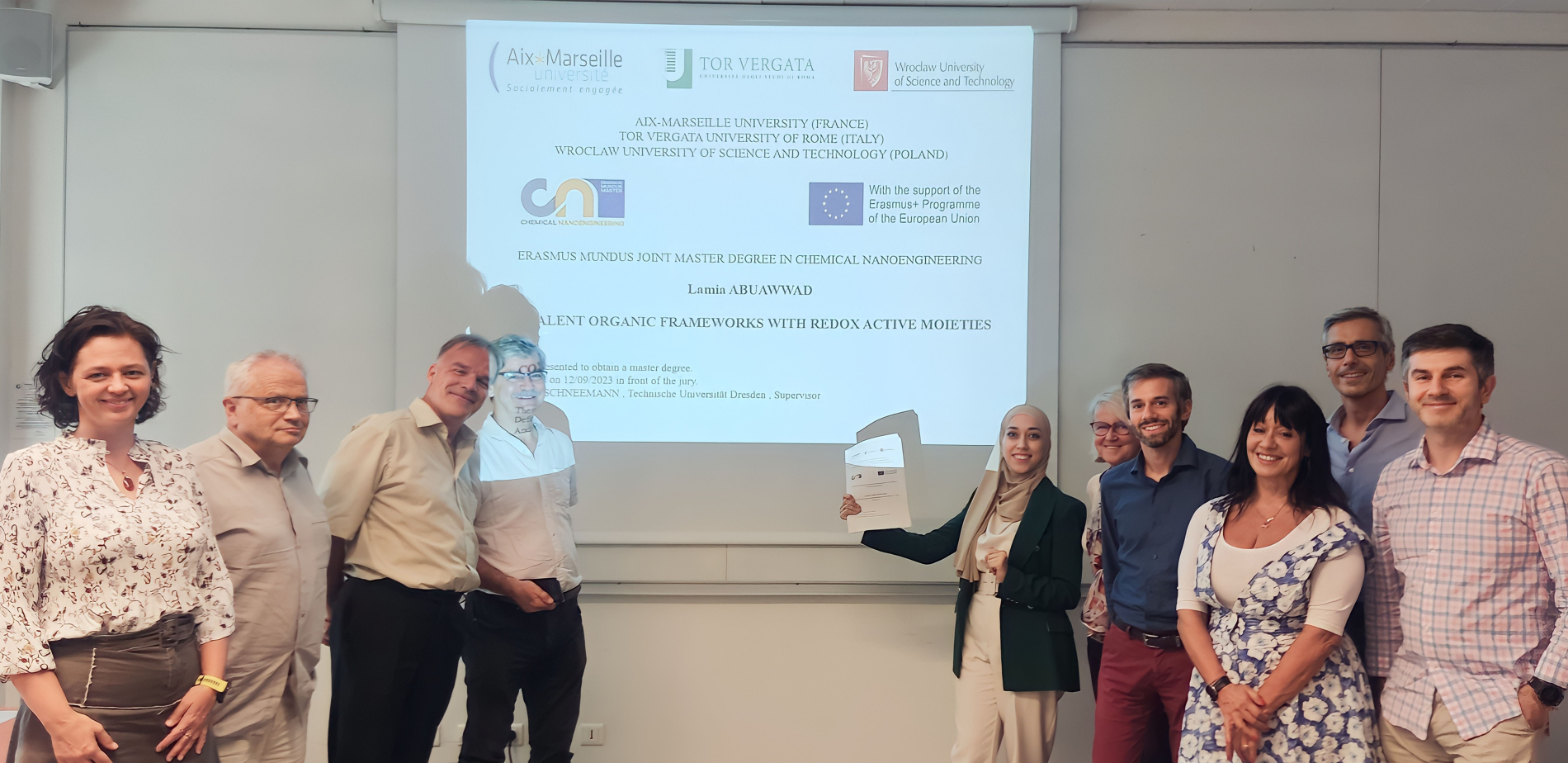YOUR BROWSER IS OUT-OF-DATE.
We have detected that you are using an outdated browser. Our service may not work properly for you. We recommend upgrading or switching to another browser.
Date: 19.09.2023 Category: international cooperation, student activity

A further 21 people from different countries around the world have started pursuing the unique Chemical Nano-Engineering degree programme, delivered jointly with universities in France and Italy. Also, 15 graduates defended their theses during a special session on Thursday.
A further 21 people from different countries around the world have started pursuing the unique chemical Nano-Engineering degree programme, delivered jointly with universities in France and Italy. Also, 15 graduates defended their theses during a special session on Thursday.
The collaboration between Wrocław University of Science and Technology, Aix-Marseille University (France), and Tor Vergata University in Rome (Italy) under the Erasmus Mundus Joint Master Degree programme has now lasted for five years.

The three universities are working together to educate students from around the world on a master's degree programme in the thriving field of chemical nanoengineering. “It’s an interdisciplinary course incorporating elements of physics, chemistry, chemical engineering, molecular electronics, and materials engineering,” says Professor of the University Elżbieta Zienkiewicz, PhD, Eng. at Wrocław Tech’s Faculty of Chemistry, the coordinator of the course at our university. All graduates will gain broad competencies in working with nano-scale objects and systems – both experimental, in synthesis and physicochemical characterisation, and theoretical and numerical – necessary to design them.
The first three semesters are common to all students, who will spend them successively in Marseille, Wrocław, and Rome. The final semester, on the other hand, is dedicated to their master's thesis projects, to be completed at one of the partner universities or an affiliated institution.
“In addition, at the end of the first year, the participants in the programme take part in a Summer School organised at the Krobielowice Palace, and also do summer scientific internships at research or R&D centres,” adds Prof. Zienkiewicz.
Scholarships awarded under the Erasmus Mundus programme and granted by the French government await all students.
 During the inauguration ceremony for the new students, held this week in Marseille, 21 people from 16 countries around the world began their programmes, including one Pole, Marcelina Karasek, who is a graduate in biomedical engineering (specialising in Medical Informatics) at the Faculty of Fundamental Problems of Technology. “My interests include growing ornamental plants and programming mobile applications,” says the Wrocław Tech graduate.
During the inauguration ceremony for the new students, held this week in Marseille, 21 people from 16 countries around the world began their programmes, including one Pole, Marcelina Karasek, who is a graduate in biomedical engineering (specialising in Medical Informatics) at the Faculty of Fundamental Problems of Technology. “My interests include growing ornamental plants and programming mobile applications,” says the Wrocław Tech graduate.
She will continue her studies in a highly international company. Among her new peers are people from countries including Azerbaijan, Bangladesh, China, Egypt, Ethiopia, Philippines, India, Kenya, Lebanon, Mexico, Pakistan, Romania, Sri Lanka, Sudan, and Uganda. The students have now undergone the usual orientation week. “They were welcomed by representatives from all the universities. Each of us presented their university and talked about what the students needed to make it easier for themselves to start a new stage in their lives,” says Professor of the University Piotr Rutkowski, PhD, Eng. from the Faculty of Chemistry, Wrocław Tech’s second coordinator of the course.
At the celebratory launch of the new academic year, 15 students who started their courses in 2021 received their graduation diplomas. The public presentations of their MSc theses and the graduation examinations were conducted a few days earlier.
One of the graduates is Lamia Abuawwad, who comes from Palestine. In her paper entitled “Covalent-Organic Frameworks (COF) with Redox-Active Moieties”, which she worked on at the Technical University of Dresden, Lamia Abuawwad described her synthesis and study of the properties of COFs, which are now among the most important and intensively researched components of porous organic materials. 
“Due to the properties of COFs, such as large surface area, huge potential for structure modification, easy surface modification, and high chemical stability, they are widely used in catalysis and sensors, as well as for gas storage, with many other applications still being researched,” explains Prof. Elżbieta Zienkiewicz.
Our university was represented on the committee by Prof. Szczepan Roszak, Professor of the University Piotr Rutkowski, PhD, Eng, and Professor of the University Elżbieta Zienkiewicz, (all Faculty of Chemistry, Wrocław Tech).
The next admission procedure for this unique course starts in mid-November. The top 17 candidates can expect special European scholarships.
Those interested in the degree programmes are welcome to contact us:

Our site uses cookies. By continuing to browse the site you agree to our use of cookies in accordance with current browser settings. You can change at any time.